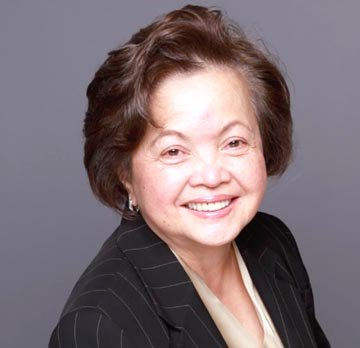Delivering Change: How Dr. Norma Veridiano Built a Sanctuary for Birth Through Brooklyn Birthing Center

When Dr. Norma Veridiano founded the Brooklyn Birthing Center in 1999, she wasn't just opening a new facility. She was challenging decades of entrenched thinking about childbirth. In a city where hospital births dominated the landscape, she dared to create a freestanding, licensed birthing center, one that would offer low-intervention care for low-risk pregnancies, grounded in the traditions of midwifery and the intimacy of home birth.
"I wanted to give women back the control of their birth experience," Veridiano affirms. "For those who didn't want to be in a hospital but couldn't have a home birth, this was the answer."
It was a vision forged over decades in medicine. Veridiano completed her residency in 1973 and joined the faculty at a university hospital in New York. Early in her career, she became a voice in women's reproductive health research. Her work was particularly groundbreaking in the involvement of the effects of diethylstilbestrol (DES), a drug once prescribed to prevent miscarriage but later linked to a rare vaginal cancer in young women.
With grant funding from the state, she helped identify and monitor those at risk, diagnosing cases and guiding patients through what was often a frightening and isolating medical journey. "These were teenagers, sometimes in their early teens, facing a cancer diagnosis," she recalls. "And their mothers carried this deep guilt. At the time, giving DES was the standard of care; it was believed to help. But the long-term effects were devastating."
Her experience underscored a troubling truth: women's reproductive health was chronically under-researched, often overlooked until tragedy struck.
Years later, as a practicing obstetrician in Brooklyn and Manhattan, she saw another systemic gap, not in prevention, but in the very experience of giving birth. Too often, she watched patients restricted to beds, denied movement, placed on monitors, and prematurely advised toward epidurals. She fought small battles in delivery rooms, asking nurses to allow a mother to walk, to shower, to labor without unnecessary interventions.
"I finally said, ' Women give birth all over the world without all these restrictions, '" Veridiano says. "If you screen them carefully and have skilled midwives, birth can be safe and natural outside of a hospital."
It took seven years of determination and a crucial partnership with a believer who helped secure funding and space before Brooklyn Birthing Center opened its doors. Today, it stands as a proof of concept: a safe, welcoming environment that has served thousands of families over its 26 years.
The model works because it meets women where they are, both literally and figuratively. Some clients are drawn by the desire for a more natural, low-tech birth. Others find it's their only realistic option. Home births, for example, can be out of reach for women living in crowded apartments, in homeless shelters, or with multiple young children. And while many home birth midwives work outside insurance networks, the Brooklyn Birthing Center contracts with most major insurers, widening access.
Veridiano is proud of what the center has proven. "We've shown that birth outside a hospital can be safe, respectful, and deeply supportive," she says. "We've answered the call for women who are afraid of the hospital and for those whose only other option was home."
But her work is far from done. During the pandemic, she stepped back into a hands-on role, assisting at births and connecting more deeply with patients. She became acutely aware of the unique challenges faced by pregnant women experiencing homelessness. Discharged from the center just four to six hours after delivery, they often return to shelters ill-equipped to support postpartum recovery.
Now, Veridiano is working toward her next goal: creating a dedicated postpartum aftercare home, staffed by doulas, where new mothers, especially those without stable housing, can spend several days recovering, bonding with their babies, and receiving crucial support. "Pregnancy doesn't end with delivery," she shares. "Women are still at risk for postpartum depression, preeclampsia, and other complications. They need a safe place to rest and heal."
For Veridiano, this mission is personal as much as it is professional. "It's a feeling that makes you know there's a reason you're here," she reflects. "It is a purpose, a blessing."
And even twenty-six years after the Brooklyn Birthing Center welcomed its first family, Dr. Norma Veridiano is still occasionally delivering babies; delivering change, one birth, one mother, and one community at a time.
© Copyright IBTimes 2024. All rights reserved.




















